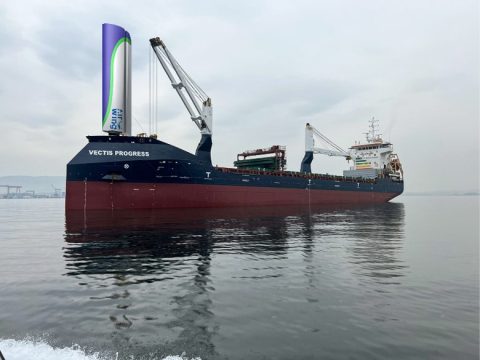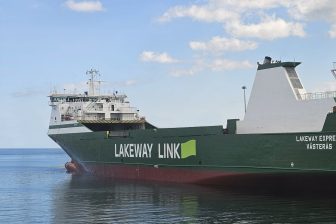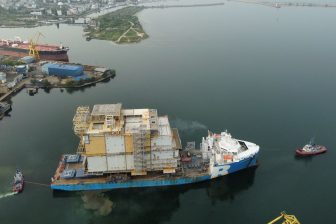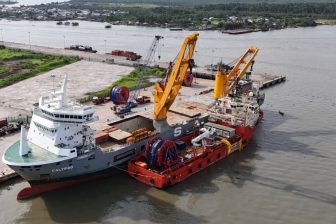
Carisbrooke Shipping to trial wind-powered fleet decarbonisation
Carisbrooke Shipping, a family-owned shipping company, has partnered with GT Green Technologies and The University of Bristol to lead a shift in commercial shipping towards decarbonisation. They have received a substantial grant of £3.7 million (€4.3 million) from the UK Department for Transport (DfT). With this funding, Carisbrooke Shipping is planning to install a 20-meter AirWing unit on one of its UK-registered vessels.
The AirWing is a wind propulsion solution designed by GT Green Technologies boasting patent-pending airflow manipulation, promises to maximize thrust output while maintaining a compact and lightweight profile. Particularly crucial for general cargo ships with limited deck space, AirWing addresses the urgent need for shipping decarbonisation.
Capt. Simon Merritt, Senior Fleet Manager at Carisbrooke Shipping, said, “We’ve been in talks with GT Green for the past two years and are thrilled to be prototyping their AirWing concept in 2024. The utilisation of AirWing technology will reduce operating costs through lower fuel consumption and emissions (the expected range can be 5 – 30 per cent depending on the configuration), further enhance the vessel’s green credentials and alleviate the tax burden for our ship operators. The installation will take place on one of our UK-registered vessels, with all design and construction carried out right here in the UK.”
Read also: Carisbrooke orders another multipurpose vessel at Thecla
Adding academic prowess to this collaboration is The University of Bristol, contributing expertise in composite structures testing and modelling. Tobias Laux, Research Associate at the university, emphasized the importance of cross-disciplinary research in fluid dynamics, structures, and ship science to fully harness the potential of wind propulsion.
UK Government’s decarbonisation programme
This project is part of the Clean Maritime Demonstration Competition Round 4 (CMDC4), funded by the UK Department for Transport (DfT) and delivered by Innovate UK. CMDC4 is part of the Department’s UK Shipping Office for Reducing Emissions (UK SHORE) programme, a £206 million (€241 million) initiative focused on developing the technology necessary for decarbonisation of the UK domestic maritime sector.
In March 2022, the UK Government announced the biggest government investment ever in our UK commercial maritime sector, allocating £206 m to UK SHORE, a new programme within the Department for Transport focused on decarbonising the maritime sector. UK SHORE is delivering a suite of interventions throughout 2022-2025 aimed at accelerating the design, manufacture and operation of UK-made clean maritime technologies and unlocking an industry-led transition to Net Zero.
The UK SHORE programme includes the flagship multi-year Clean Maritime Demonstration Competition (CMDC) which provides match-funding to help bring pre-commercial technologies closer to market readiness. CMDC4 allocated £33m to 33 projects across the UK to deliver demonstrations, pre-deployment trials and feasibility studies between April 2024 – March 2025. The projects are supported by over 120 partners and will leverage more than £16m of private investment.
Fednav chartered vessel
In a separate statement, Canada’s dry bulk shipping major, Fednav, noted that the vessel to receive the AirWing concept is one of the vessels it chartered from Carisbrooke.
“When travelling to and from ports in Canadian waters, possibly even inside the Great Lakes, the AirWing will give the ship an additional thrust, lowering fuel consumption and CO2 emissions”, says Dave Williams, Fednav’s Senior Manager, Technical Services.
The project should start in 2025, and this ship should be the first in Canada to operate as a conventionally propelled cargo vessel using a Wind-Assisted Propulsion System (WAPS).
You just read one of our premium articles free of charge
Register now to keep reading premium articles.




